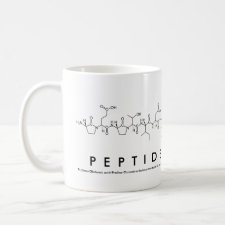
Authors: Zeng ZY, Hoshino Y, Rodriguez A, Yoo HS, Shea KJ
Article Title: Synthetic Polymer Nanoparticles with Antibody-like Affinity for a Hydrophilic Peptide.
Publication date: 2009
Journal: ACS Nano
Volume: 4
Issue: (1)
Page numbers: 199-204.
DOI: 10.1021/nn901256s
Alternative URL: http://www.ncbi.nlm.nih.gov/pmc/articles/PMC2815330/
Abstract: Synthetic polymer nanoparticles with antibody-like affinity for a hydrophilic peptide have been prepared by inverse microemulsion polymerization. Peptide affinity was achieved in part by incorporating the target (imprint) peptide in the polymerization reaction mixture. Incorporation of the imprint peptide assists in the creation of complementary binding sites in the resulting polymer nanoparticle (NP). To orient the imprint peptide at the interface of the water and oil domains during polymerization, the peptide target was coupled with fatty acid chains of varying length. The peptide-NP binding affinities (ca. 90 - 900 nM) were quantitatively evaluated by a quartz crystal microbalance (QCM). The optimal chain length was established that created high affinity peptide binding sites on the surface of the nanoparticles. This method can be used for the preparation of nanosized synthetic polymers with antibody-like affinity for hydrophilic peptides and proteins ("plastic antibodies")
Template and target information: peptides



Join the Society for Molecular Imprinting

New items RSS feed
Sign-up for e-mail updates:
Choose between receiving an occasional newsletter or more frequent e-mail alerts.
Click here to go to the sign-up page.
Is your name elemental or peptidic? Enter your name and find out by clicking either of the buttons below!
Other products you may like:
 MIPdatabase
MIPdatabase









